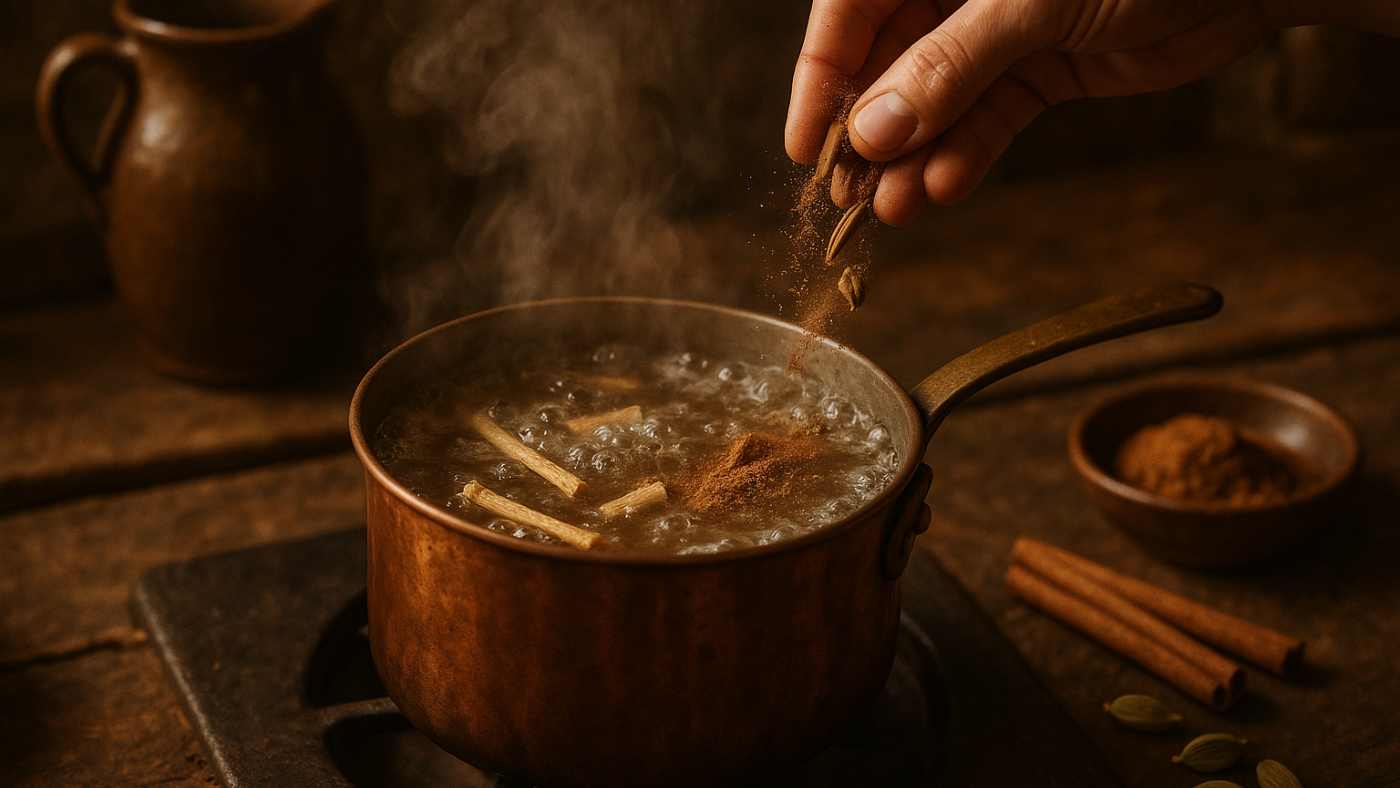Ashwagandha Tea: Better Than Wine for Evening Calm?

Mindful relaxation can seem a lost art in modern life. But in old traditions lie simple cures that are relevant even today.
Ashwagandha Tea is Another Alternative. One popular remedy that has been used for this condition is ashwagandha tea, which is a tea made from the root of the Withania somnifera plant.
As more than just a standard relaxing drink, lavender tea offers deep relaxation benefits that go beyond both tradition and science.
Why Tea Instead of Capsules?
Capsules are handy, but tea erects a ritual.
The brewing, inhaling of the scent, a nd sipping slowly all add to the calming effect.
That is why tea is such a strong player in the coronavirus game of sensory relaxation coupled with systematic relaxation.

How to Prepare Ashwagandha Tea for Relaxation
Ashwagandha tea: To make ashwagandha tea, dried root or root powder can be used. Boil 1 to 2 teaspoons in water for 10–15 minutes, then strain.
For a richer taste and enhanced relaxation, some customs simmer it into milk and honey.
The warm, earthy flavor also pairs well with spices such as cinnamon or cardamom.
The Relaxation Mechanism
Ashwagandha tea helps to soothe the nervous system and decrease cortisol (1).
Drinking it in the evening signals to the body that it’s time to calm down, helping support restful sleep.
With time, this exercise builds resilience to stress.
Enhancing the Ritual
Drinking ashwagandha tea before bed helps drive this effect even further.
When enjoyed quietly, with a good book, as meditation, with jotting notes in a journal, this simple drink becomes a gestalt of relaxation.
Modern Science Meets Ancient Tradition
Research also shows that ashwagandha tea is effective at lowering anxiety and helping you get a better night's sleep (2).
The balance of adaptogenic ingredients combined with soothing heat turns it into a brilliant handshake between ancient wisdom and contemporary wellness (3).
Finalization
It’s simple to make, and with a quick 30 minutes, you can be in deep relaxation. Solution: One cup every night is a natural method to unwind and fall asleep.
☕Brew your calm tonight. Just have some ashwagandha tea and actually relax. 🌿
FAQs on Ashwagandha Tea
Can you drink ashwagandha tea every day?
Yes, daily use is usually fine, but moderation is the most important factor.
Does ashwagandha tea taste good?
Its flavor is earthy and is typically made earthier by adding honey, cinnamon, or milk.
How long before bedtime should I take it?
30–60 minutes prior to sleep for a relaxation effect.
Can I mix it with other herbs?
Yes, Ashwagandha is good to be included with chamomile, tulsi, and cinnamon.
Do drinking tea provide the same benefits as taking capsules?
It might not be absorbed as quickly, but it is a soothing ritual that capsules do not provide.”
Related Studies
1. Title: A Prospective, Randomized Double-Blind, Placebo-Controlled Study of a High-Concentration Ashwagandha Root Extract in Reducing Stress and Anxiety in Adults (2012)
In a 60-day RCT, ashwagandha significantly reduced perceived stress and serum cortisol compared with placebo, supporting its cortisol-lowering effect.
Link: https://www.ncbi.nlm.nih.gov/pmc/articles/PMC3573577/
2. Title: A Randomized, Double-Blind, Placebo-Controlled Study to Evaluate the Effects of Ashwagandha Extract on Sleep Quality in Healthy Adults (2020)
Over 6 weeks, daily ashwagandha improved sleep quality (e.g., PSQI, sleep efficiency) versus placebo in healthy adults.
Link: https://pubmed.ncbi.nlm.nih.gov/32540634/
3. Title: An Investigation into the Stress-Relieving and Pharmacological Actions of an Ashwagandha Extract: A Randomized, Double-Blind, Placebo-Controlled Study (2019)
In stressed adults, ashwagandha produced significant reductions in anxiety and stress scores compared with placebo.
Link: https://pubmed.ncbi.nlm.nih.gov/31517876/

